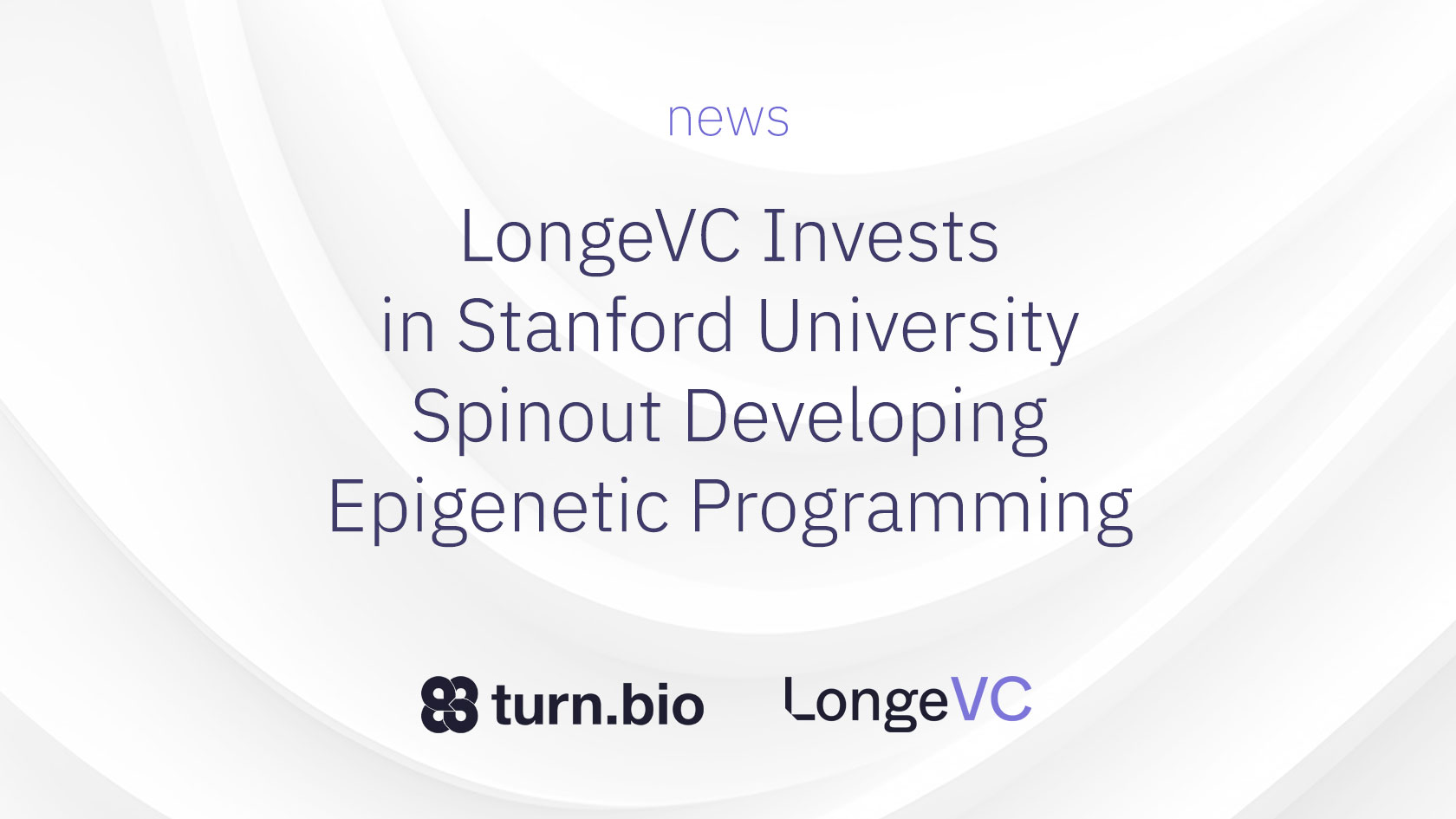Now we’re in a race to extend human life - in a healthy, balanced & accessible way for all.
At the heart of this science is cell conversion. Nobel Prize winner Shinya Yamanaka discovered in 2006 that mature cells could be converted back to stem cells by applying a specific cocktail of protein transcription factors. It recently sparked a multimillion-dollar funding round for a biotech company called Altos Labs, explored by one of our partners in a Cointelegraph article. Amazon founder Jeff Bezos is among those investors.
At LongeVC, we’ve been tracking this branch of longevity science closely. After in-depth research and several proposals considered, we selected the Stanford University spinout and promising startup Turn Bio to become a part of our investment portfolio. They’re developing mRNA medicines that promote partial epigenetic reprogramming to aged somatic cells. This reprogramming makes them return in time without losing differentiation. These cells regain vitality & youth, without having to revert fully to undifferentiated stem cells.
By controlling and limiting the cells’ exposure to both the dosing and timing of the transcription factors, Turn Bio can safely restore aged cells to a state where cell identity is maintained, while their effectiveness returns to that of a young state without resulting in malignant transformation. This kind of innovation has the potential to transform the sector’s approach to longevity and make a significant contribution to the way we look at ageing medicines.
Turn Bio has selected therapeutic indications that: (1) rely on local delivery strategies instead of more complex systemic delivery ones, and (2) present a simplified regulatory landscape for IND approval. The company’s lead therapeutic programs are:
- Dermatology: Lead program with target integrations including hair loss, hair color loss, wrinkles, scars, and purpura. The program is in a late preclinical stage and is expected to reach Phase 1 clinical trials in the second half of 2022.
- Ophthalmology: This program leverages the closed-system nature of the eye. The target indications include a formulation to rejuvenate ocular tissues, including corneal, limbus, conjunctival epithelial cells and corneal endothelial cells. Turn Bio aims to cover an additional broad range of potential therapeutic indications.
We look forward to supporting Turn Bio in their mission to bring much-need mRNA medicines to market.
